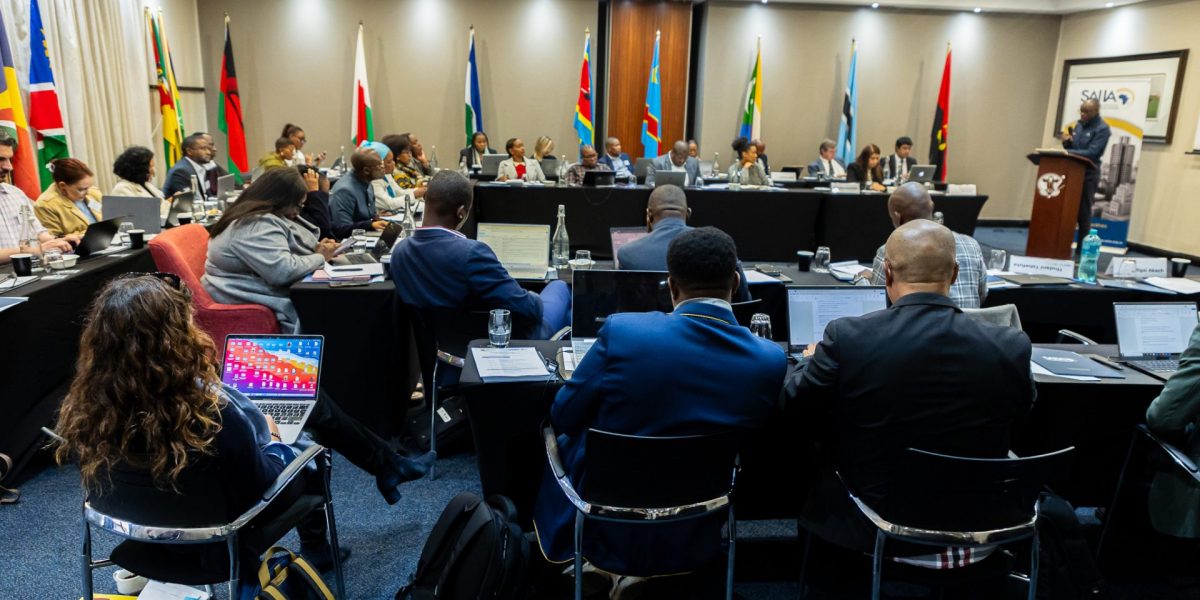Compared to Africa’s hotspots – like the Sahel, the Horn and the Great Lakes – Southern Africa has generally been peaceful. Nevertheless, complex conflicts in the Democratic Republic of Congo (DRC) and Mozambique continue to fester, setting back development efforts. At the root of most of the continent’s woes lies a word that’s easy to say but difficult to do – governance. It’s about making fair rules and applying them fairly.
As the 2024 Ibrahim Index of African Governance said, “[A]fter years of steady progress, Africa’s overall governance has stalled … For almost half of the continent’s population, overall governance performance is worse in 2023 than it was in 2014. The main driver of this is a deepening security crisis and shrinking participatory environment over almost all the continent.”
Analytical work by the South African Institute of International Affairs (SAIIA) and its partners on governance in seven Southern African countries reveals many common governance problems and what should be done about them.
This research was highlighted at a workshop held with the Continental Secretariat of the African Peer Review Mechanism (APRM) on 3-4 June 2025 in Irene, outside Pretoria, entitled “Engaging civil society in the APRM process: Lessons from Southern Africa.”
The APRM is the African Union’s premier governance monitoring and promotion instrument. It is designed to engage all national role players in a participatory analysis of the biggest governance challenges facing the state. The APRM is voluntary, and has 44 current members, about 60% of whom have undergone at least one review. And while many governance deficits have been well diagnosed – most famously presaging xenophobia in South Africa, election-related ethnic violence in Kenya, and the breakdown of peace in northern Mozambique – it is in the implementation and integration with plans and budgets where the APRM’s recommendations have, for the most part, kept the patient in the waiting room.
SAIIA has been working on the APRM since 2002. This experience has revealed that civil society organisations (CSOs) usually start out sceptical towards the APRM. It seems too complicated, too government-dominated and too unrelated to their daily advocacy work to matter. They have seen many grand plans come and go. Then, when they recognise that the APRM is a tool to advance the conversation about things that do count – including human rights, media freedoms, elections, education, healthcare, employment, corporate governance and climate change, for instance – they lack the capacity, entry points and stamina to make a meaningful contribution. The APRM process at national level is sometimes stage-managed to include CSOs friendly to the government and silence or ignore critical voices.
Drawing on its experiences in more than 30 countries, over the last seven years, SAIIA has partnered with loose coalitions of CSOs across Southern Africa to build their capacity to develop a well-written and well-evidenced APRM submission. In South Africa, the report was compiled entirely by young people, working remotely in all nine provinces, due to the COVID-19 pandemic. The skills gained will serve these individual and organisations well once the APRM has faded from prominence at national level after the review is launched, as it inevitably does.
These research groups have emphasised what they collectively felt were the most critical governance issues in their respective countries. The submissions – from (in the order they were finalised) Namibia, Botswana, South Africa, Zimbabwe, Lesotho, Malawi and Tanzania – are all intended as constructive, forward-looking inputs into the national APRM process and the background work of the Continental Secretariat.
The work demonstrates that many issues like pandemic, climate change and migration do not stop at the national border. They require regional approaches to tackle effectively, through organisations like the Southern African Development Community (SADC). It also shows that is possible to build a transnational governance community that remains engaged and shares successes and setbacks among peers.
While the APRM tackles new issues like establishing an African Credit Rating Agency and monitoring the implementation of the AU’s long-term development vision, Agenda 2063: The Africa We Want, it should not lose sight of its core business – reviewing and strengthening governance on the continent. The reviews should be credible, accessible and published as soon as possible. CSOs should advocate for an APRM process that is COPPER – candid, open, planned, participatory, exemplary and robust.
Empowering CSOs around the APRM makes a broader contribution to a more enabled civil society in different countries to analyse and debate critical issues relating to democracy and political and economic accountability, at a time when many parts of the world, not least in Africa, are experiencing a shrinking of civic space. And if we can get governance right, many other pernicious problems will be addressed.
Explore the APRM country submissions:








